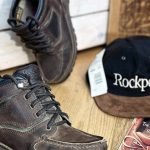The American Apparel and Footwear Association and Outdoor Industry Association joined four other U.S. trade groups to urge Australia's wool industry to set out a clearer path to finding alternatives to mulesing by 2013.
“We restate our view that the wool industry should move toward the widespread adoption of alternatives to mulesing (suitable to particular environmental conditions) in an expedited fashion, and commit to achieve this objective within a reasonable timeframe,” reads a Feb. 24 letter addressed to a consultant advising the Australian woold industry. “We again call upon the representative organizations of the Australian wool industry to provide a public report that maps out a strategy with measureable milestones to achieve this goal.”
The letter is also signed by the National Retail Federation, the Retail Leaders Association, the US Association of Importers of Textiles and Apparel and the Wool Working Group.
Mulesing is a crude surgical procedure used to remove the skin around a sheep's anus to prevent flystrike, a potentially fatal insect infestation. Animal rights groups have criticized mulesing as inhumane and pressured western retailers and brands to use non-mulesed wool. Australian farmers counter that the procedure saves as many as three million sheep a year from dying a slow, agonizing death from flystrike. The debate has threatened Australia's booming wool exports, particularly to China.
The letter goes on to praise the Australian Wool Exchange for verifying National Wool Declarations, which tell buyers at auction wherther individual bales of wool were produced by mulesed sheep. But the letter, which is addressed to Australian Wool Industries Secretariat Consultant Peter Morgan, also urges the industry to make such declarations mandatory and bolster independent verification. Less than 10% of Australian wool is non-museled, according to some media reports. The letter also praises growing use of analgesics to dull the pain of the mulesing procedures, but again urges their expanded use.
The mulesing controversy has hurt Australia's wool industry, particularly when it comes to exporting merino wool to Chinese factories serving eco-conscious outdoor apparel brands. Icebreaker, SmartWool and Ibex Outdoor Clothing, for instance ,have all opted use non-mulesed merino wool from New Zealand, where a cooler climate lessens or eliminates the incidence of flystrike.













